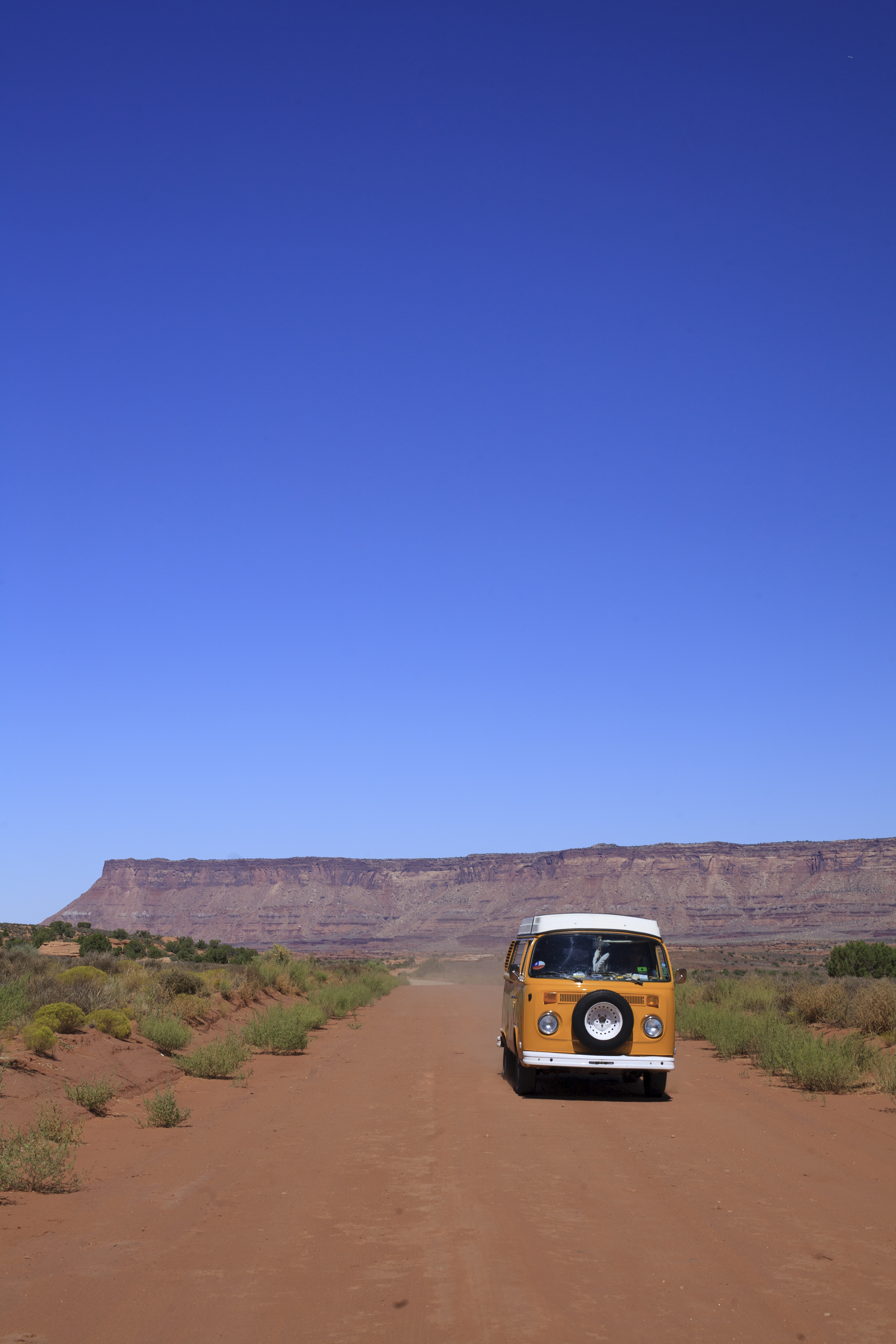
in 3 years on the road, we’ve learned more than in 18 years of schooling combined.
–
Secondhand knowledge is useful. Books and films allow us to view reality through others’ perspectives. They broaden our minds through the scope of varied lives, so different than our own.
–
Yet, art will never replace experience as the ultimate teacher. We need to touch, to smell, to gaze upon the real world, upon genuine people, in order to ever truly know anything. So get out and live, for only living can teach us how to thrive.
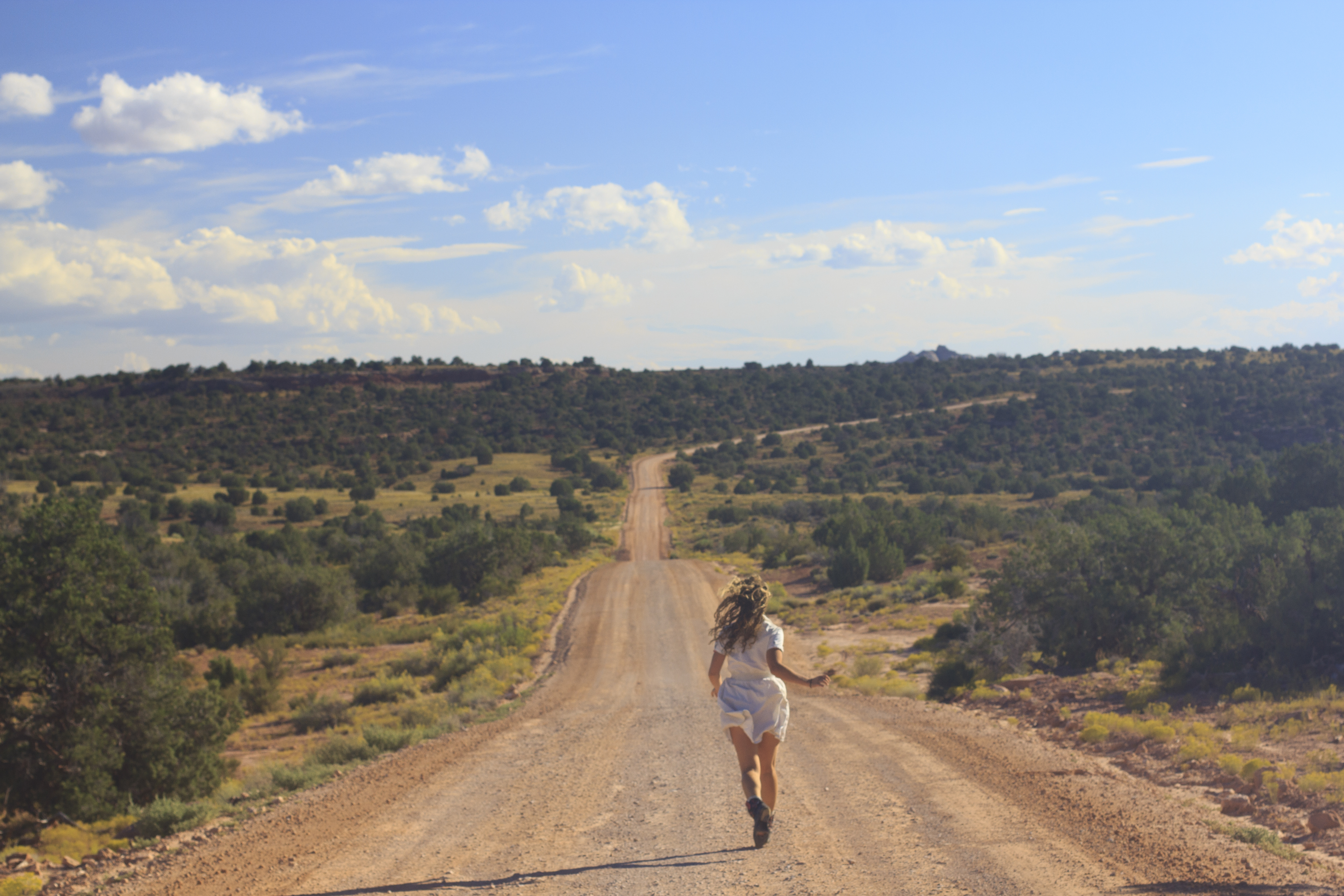
I hit a snake last night. Our first time running over an animal in the wild. We’re always so careful and slow.
–
Its body was severed badly. I felt its pain as though it were my own, tears heavy on my cheeks. We stopped and James sliced its head off in one bold stroke, put it out of its misery. The bones of my chest were crushed with agony.
–
The loss of the wild is something that whirrs through my mind ceaselessly. Sometimes I pretend I’m not part of it, that I am wild, that I help the wild. I know it’s not true. My heart calls to the snake, to its gentle spirit. How can we do it, snake? How can we stop destroying you? How can you continue on, so wild? But the snake doesn’t answer. It’s gone from this earth, like so many wild things before it.
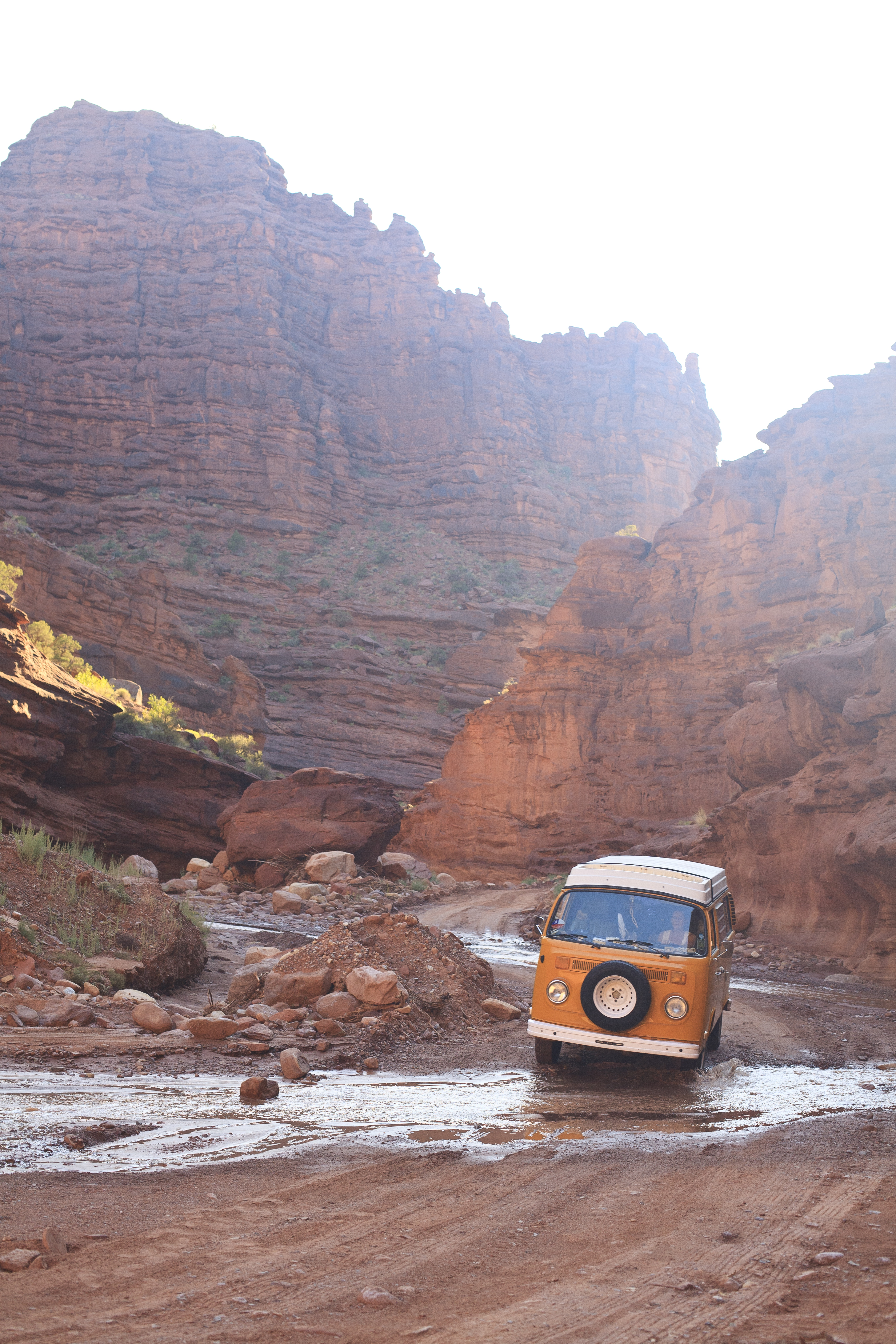
We woke in a narrow canyon, near a creek gurgle that seemed the only sound in the universe. –
Tamarisk trees were drawn in ink around us, and we warmed up water for black tea to go with our stale toast.
–
A raven flew overhead. She seemed to laugh smugly at us little humans, bound to the ground by gravity. I wished, in the cloud covered morning, to come back next time as a raven, to soar above these red canyons with such smug power, to know I am better than land dwellers because I work so intimately with that invisible tonic of life, the air.
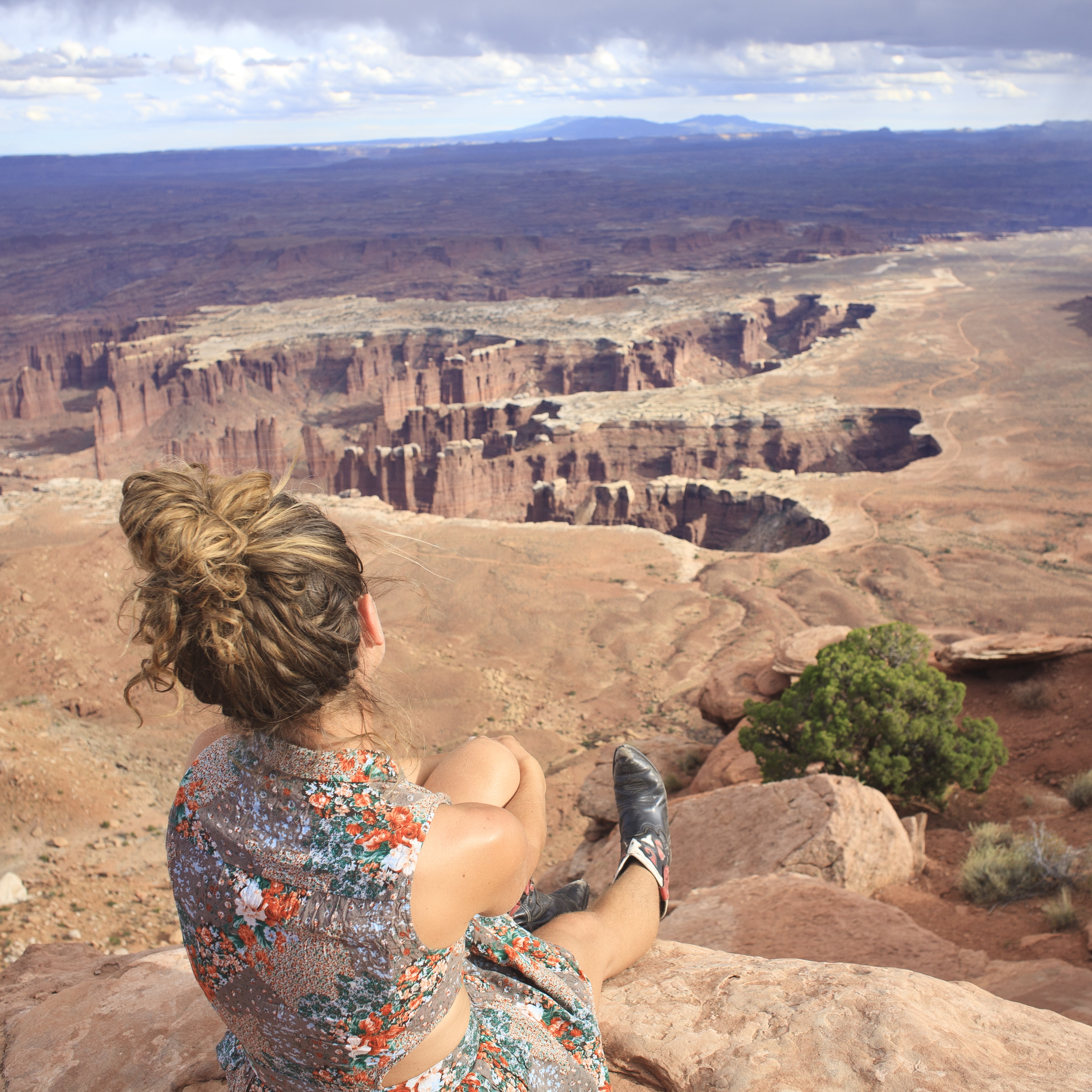
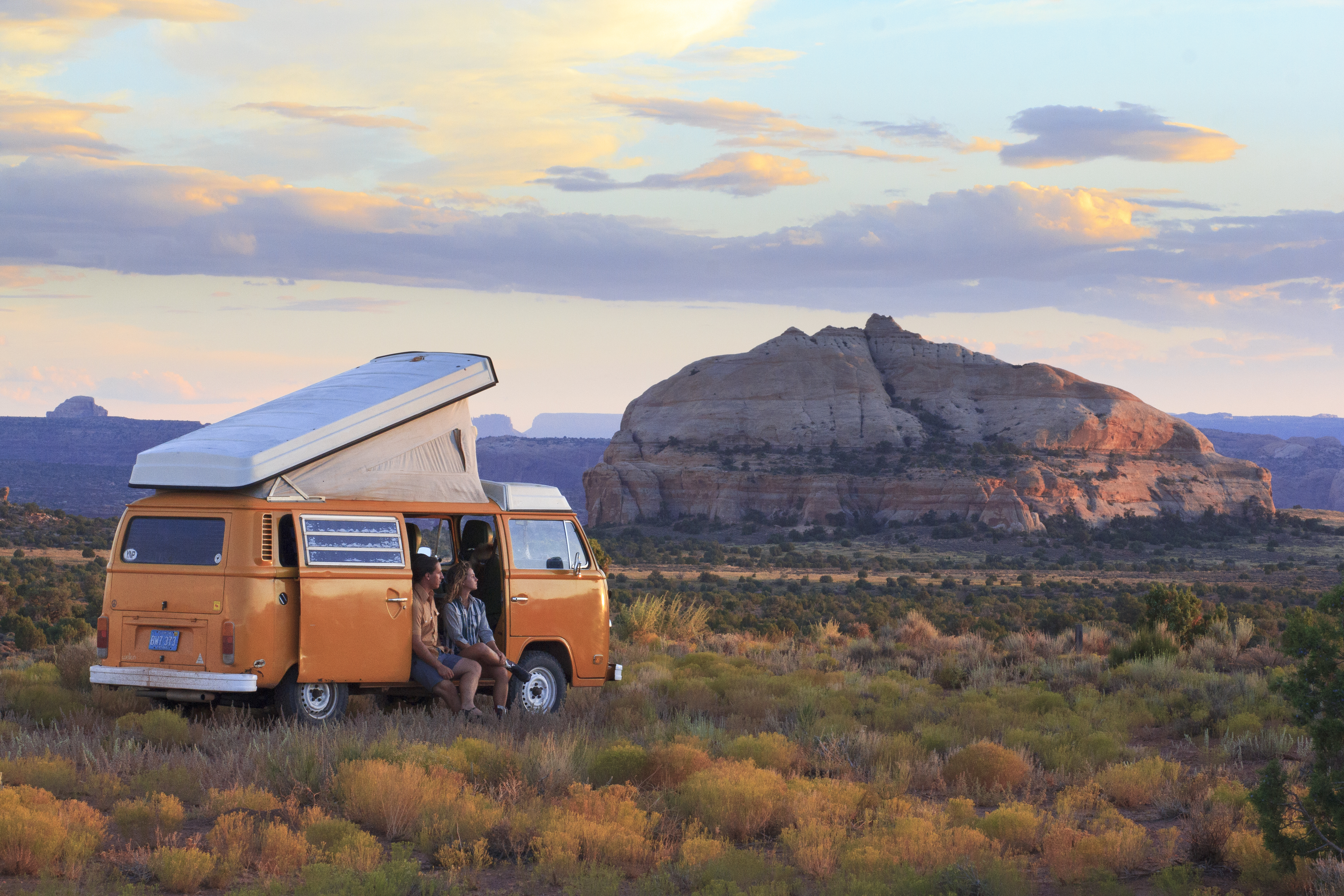
We sat, slept, and meditated in this same spot on a lone mesa for two full days. We didn’t see another human soul.
–
To do nothing, to remain still and receptive in wild places, requires humility and openness. It necessitates a confident acceptance of both yourself and your surroundings.
–
Be passive and you will know that there’s nothing you can do to earn life. It is a gift to be gratefully acknowledged and received.
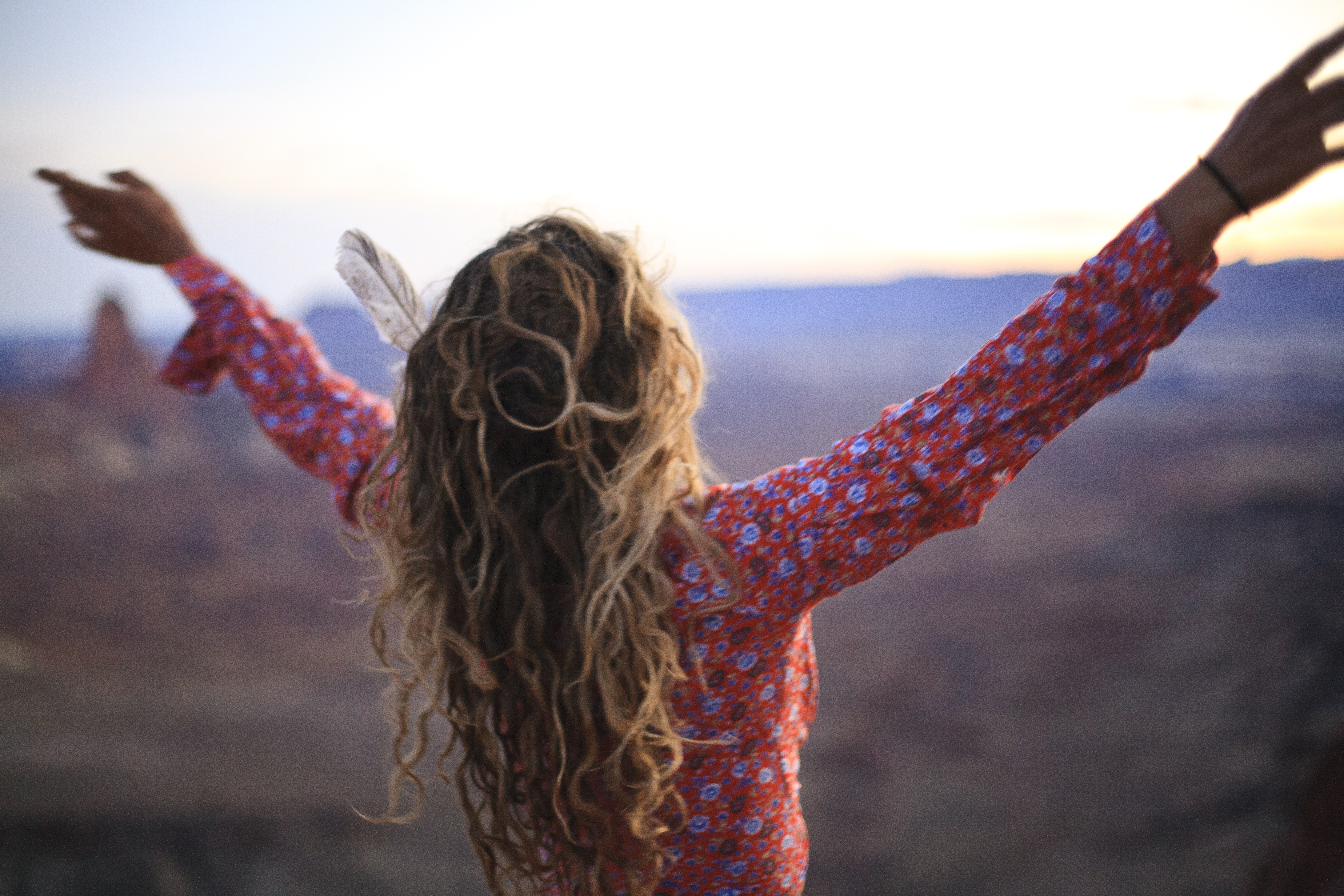
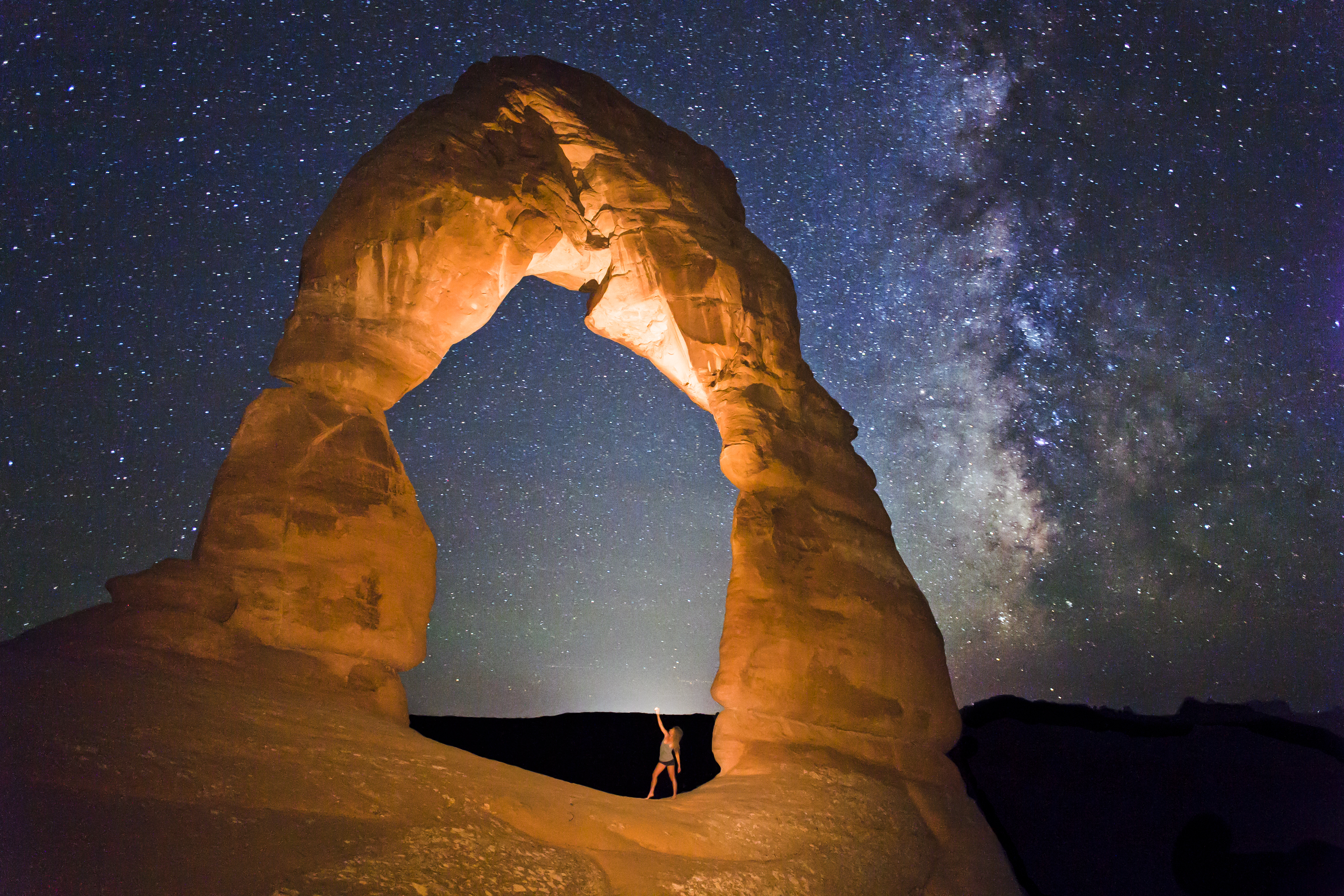
We are ephemeral. Our lives are but a blip, a tiny flash of energy in the darkness of night.
–
Above us, long dead supernovas shoot past, expired light traveling for millions of years across inert airless space. Hercules and Cassiopeia sprawl out over the velvet sky seductively, glistening with each blink of my eye. The Milky Way is royal and drenched with the opalescence of pearls.
–
Find a spot where cities are scarce and streetlights are unknown. There, you can gaze into the heavens and remember that time is only an illusion, an excuse to forget that we’ll be gone as suddenly as we came.
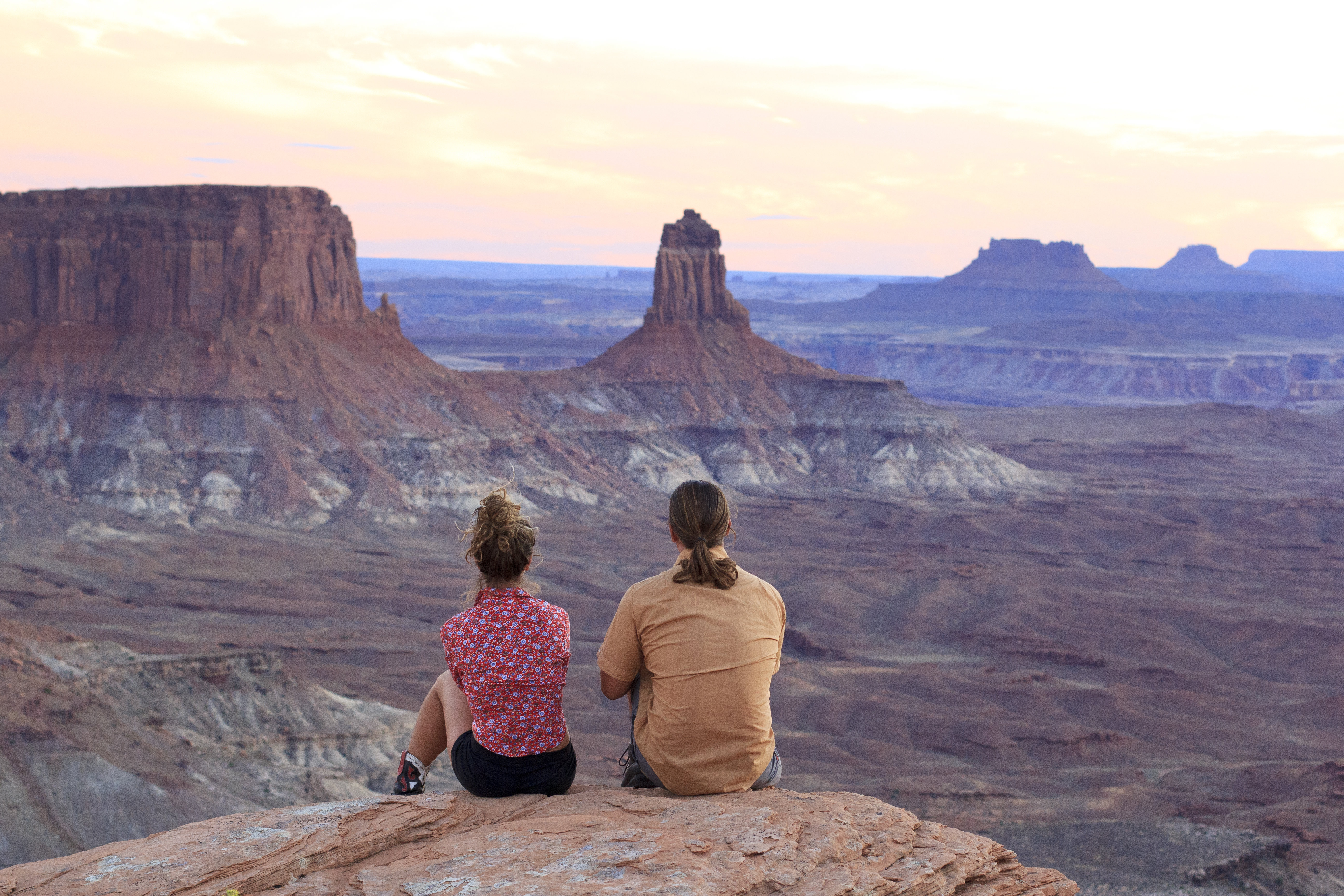
We didn’t know where we were, exactly. Off trail and hungry, we argued under a juniper tree that seemed embarrassed, its trunk leaned into a pinyon for support. The night seemed ruined.
–
Suddenly, a rock fell below us, smattering loud cannonball shots through the silent desert. We looked out into a wide canyon that burned with evening light.
–
We were standing on a cliff that sang with beauty, each corner colored a deep and rich shade of purple. Humbled out of our argument, the evening shone as our egos retreated.
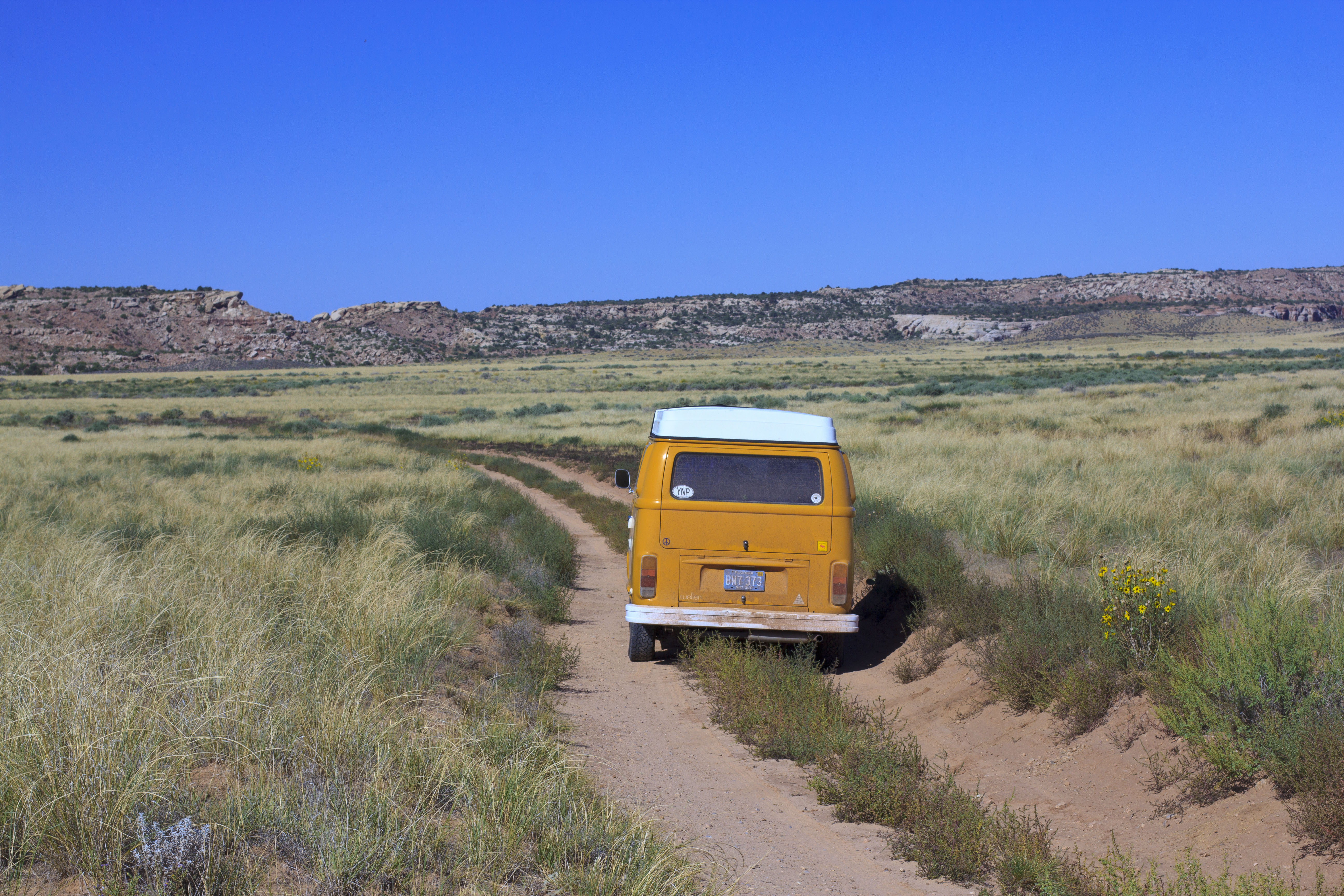 Every road tells a story. Of ranchers and pioneers, of natives and bison, of long extinct mammoths and giant sloths that once roamed the grasslands. And now us, passing through not for survival of body, but of spirit.
Every road tells a story. Of ranchers and pioneers, of natives and bison, of long extinct mammoths and giant sloths that once roamed the grasslands. And now us, passing through not for survival of body, but of spirit.
–
We want to know our history, so we can learn how to best move forward. We come here, to the places where language is unspoken, to find those things civilization cannot teach us.
–
A lone pronghorn antelope strides through the cheat grass, boldly gazing at us in the still morning. He browses the sparse shrubbery, a bite here, a bite there, then begins to run in the same direction of the road, disappearing in the grass. We’re going there too, to those bluffs in the distance, following the pronghorn, for maybe he knows the story of this road.
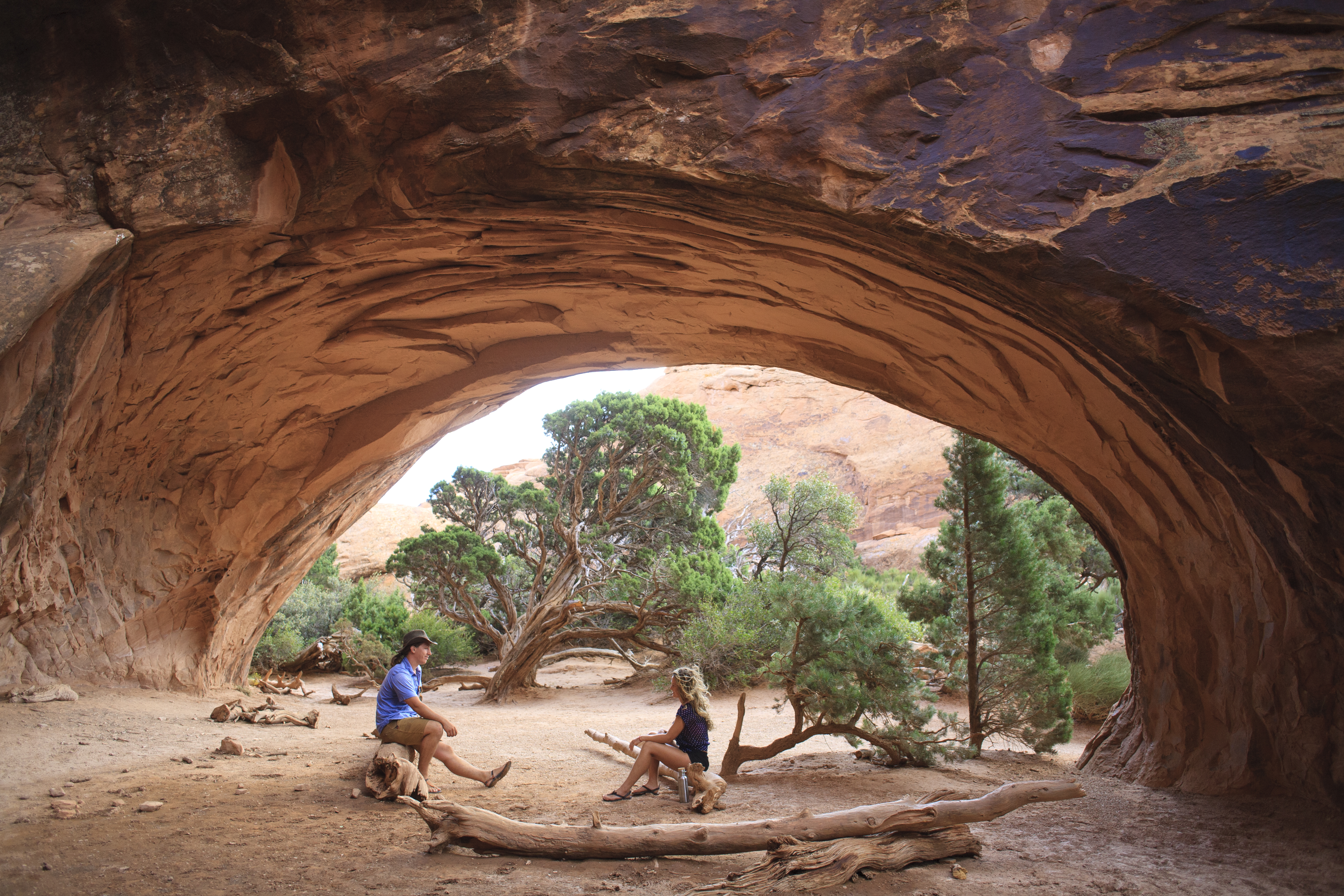
These giant Os of Navajo sandstone put geological time into perspective in a way nothing else can.
–
To our minds, the formation and destruction of an arch is frustratingly slow, pillars and windows eroding over thousands of years. From the earth’s point of view, this process occurs in a matter of hours.
–
We are so insignificant in the big scheme of it all, so tiny against these crumbling layers of rock and history. Take comfort in that thought, that our lives aren’t as big and important as they sometimes seem
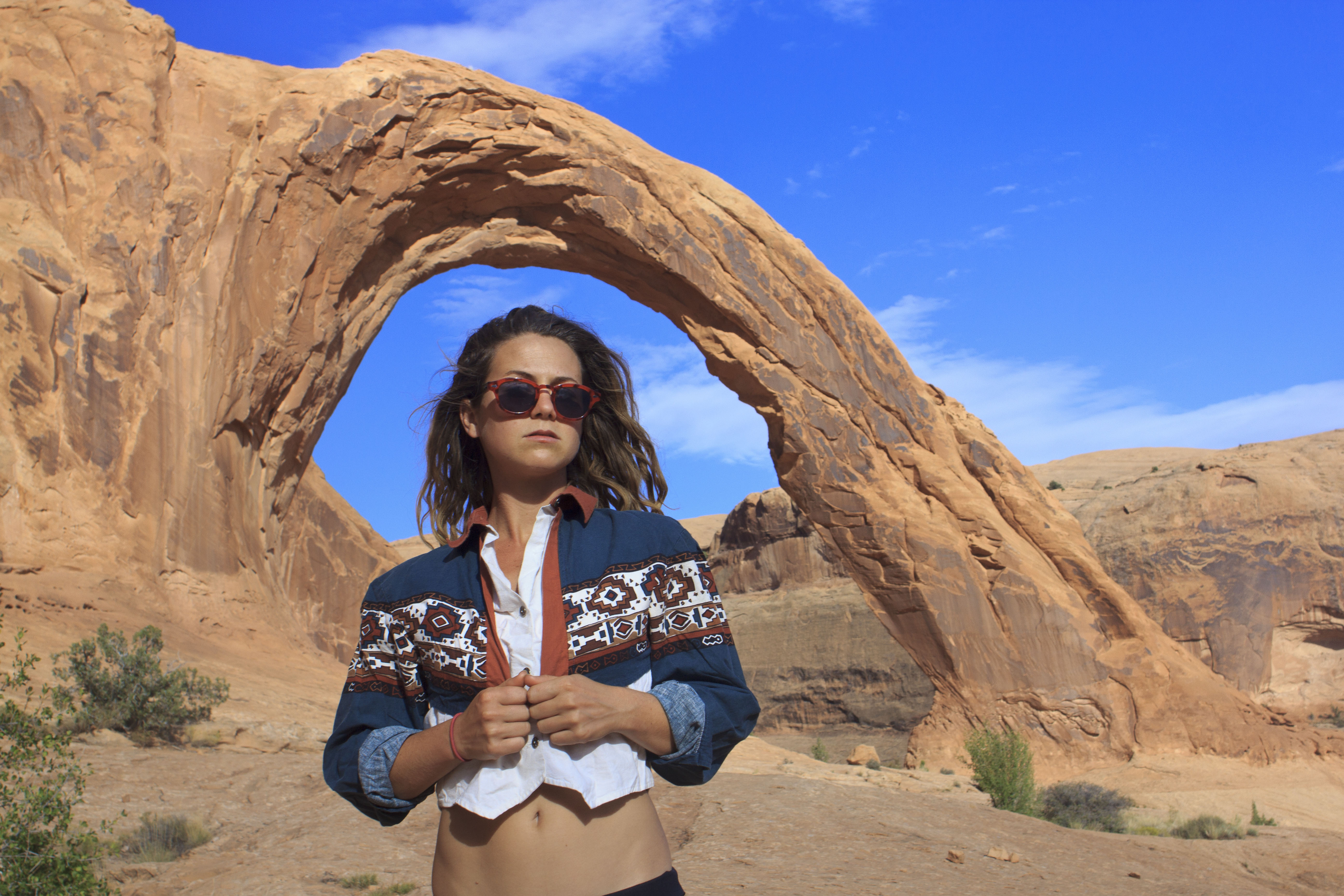
The coyotes were excited last night, frisking about in the milky half moon glow. Dozens of them yipped and yowled in the juniper flats around us.
–
I sat up and grinned like a fool, peering out at their mangy outlines, the wild way they trotted and hopped through the sage and rabbit brush. They seemed to dance for fall to come, for cooler weather and filtered sunlight.
–
We need these interactions with wild animals. We thirst for them like sweet water, we crave them like vital nutrients. They remind us of the parts of ourselves we’ve lost in civilization, the intuitive knowledge we sacrifice in domestication. Watch. Listen. Care. Wild animals tell us things we desperately need to know.
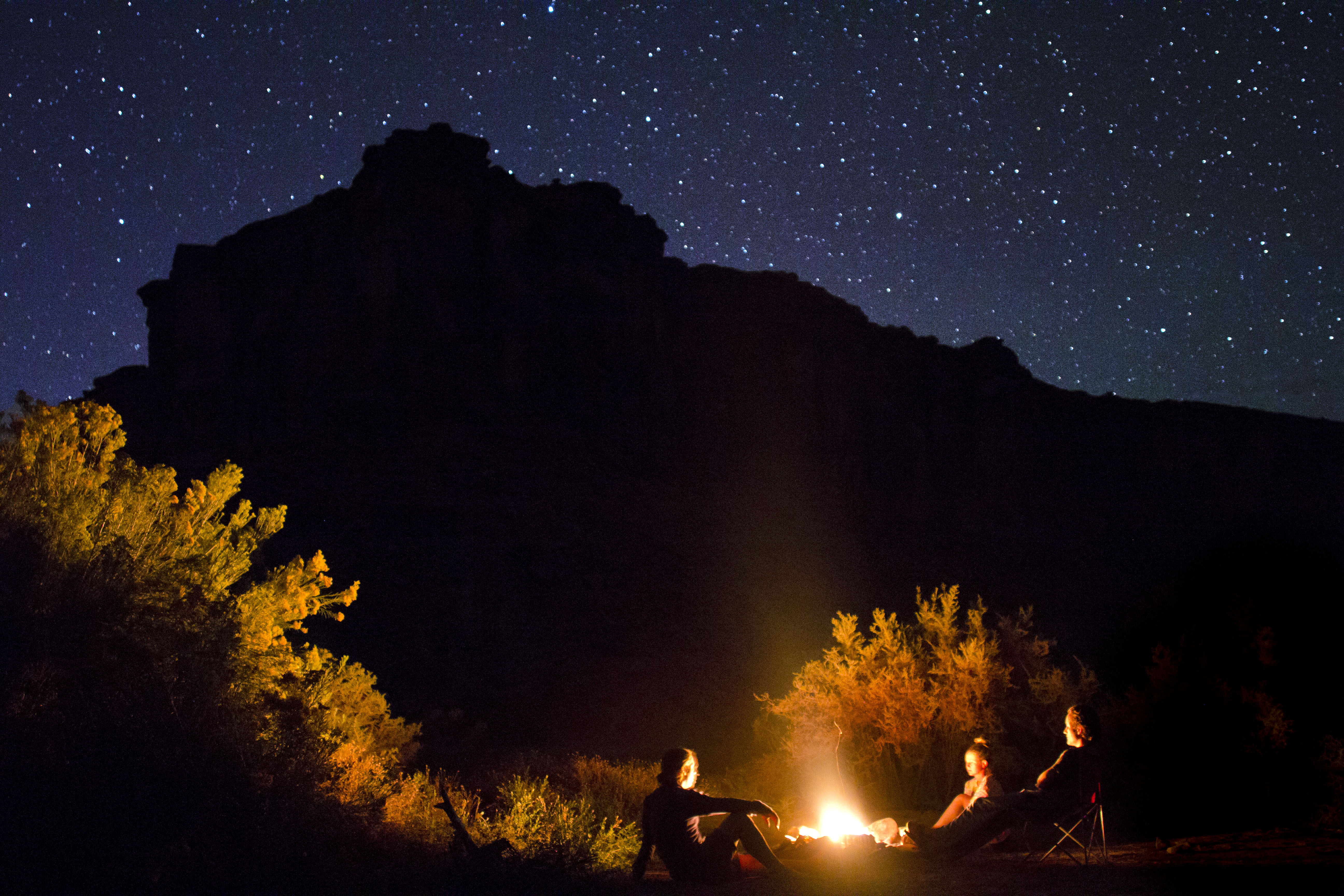
We sleep in the bus, in some wild place, nearly every night, but we rarely construct fires. They’re reserved for cold nights, for special days.
–
By the Green River, we built a fire of dead Cottonwood. It sparked and crackled, bits of recycled sun glowing in the low stone pit. We celebrated the fast moving river and the full moon. A new cycle and a new fall season.
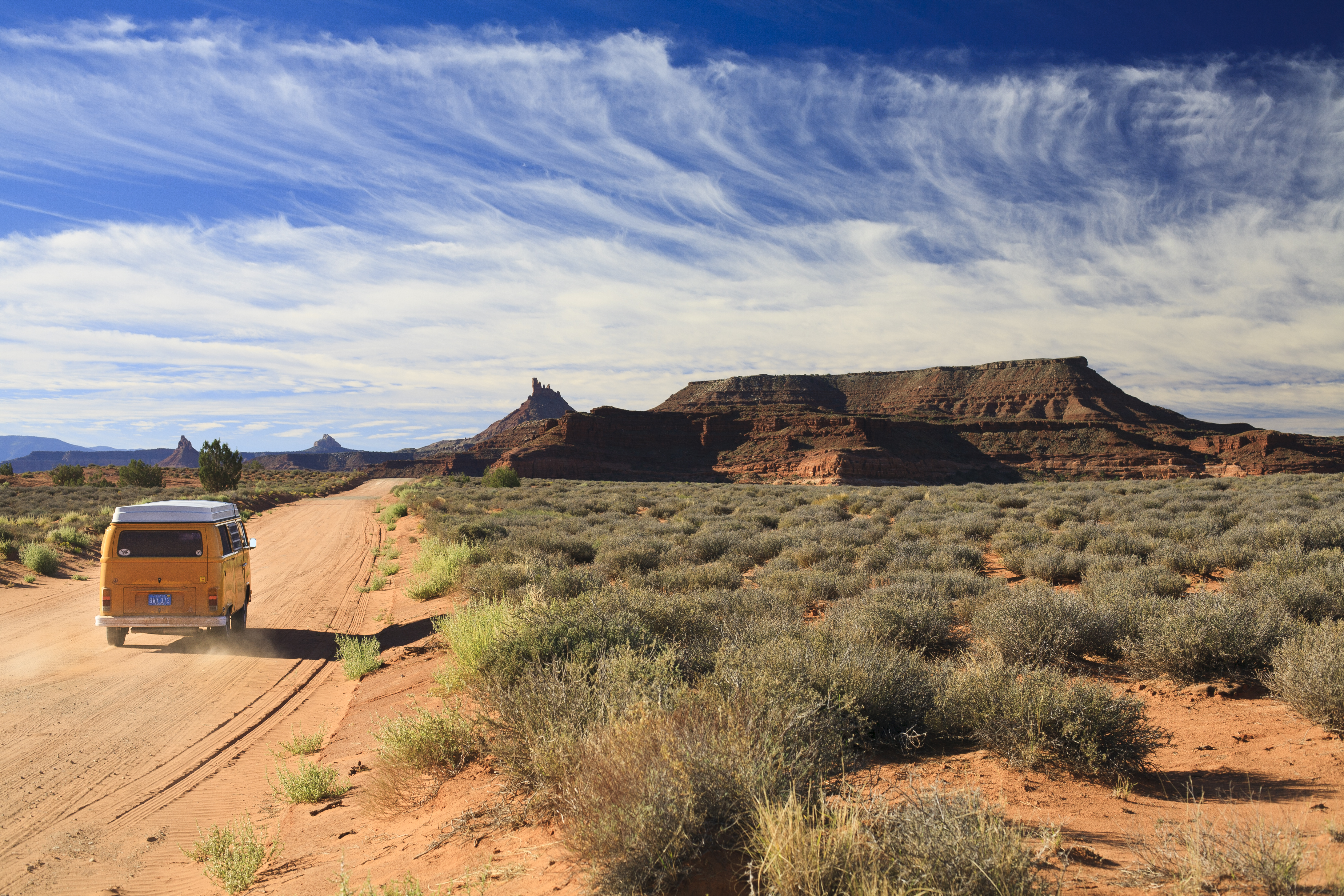
We’re looking for something out here, something rare and endangered that the city can’t offer us.
–
On backroads that lead to backroads that lead to space, we find what used to be common; peace, wildness, sanity.
–
The modern world is insane. You don’t need to listen to the news to know that. We can’t handle the madness, the oppressive development of the civilized world. We flee to these small corners. Out here, we become whole.
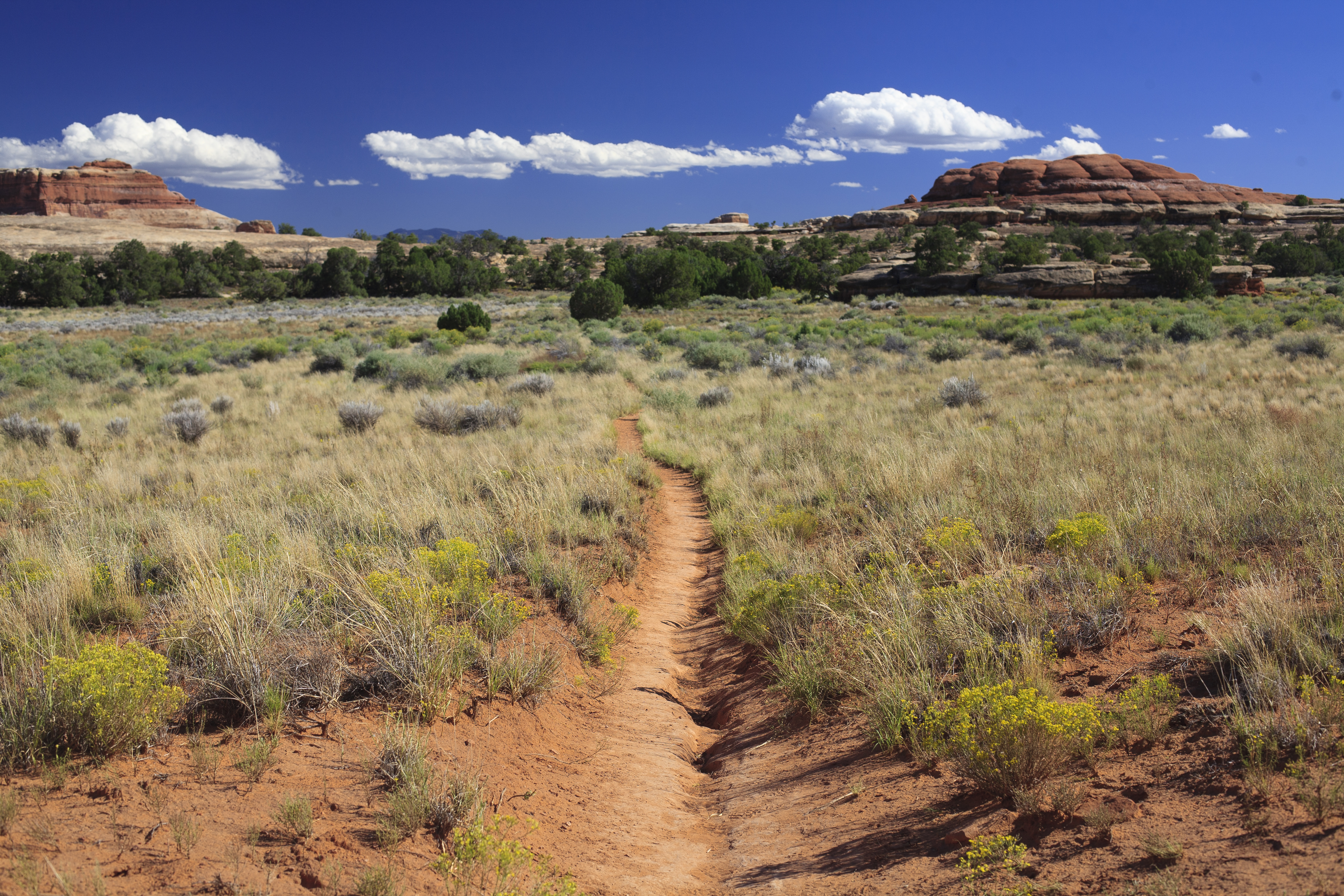
The desert floor, the dirt itself, is alive. Literally. A thick layer of bacteria, lichens, and other microscopic critters, called a cryptobiotic crust, cover the sand.
–
Think about that. The soil is ALIVE. It breathes. It eats. It has a job.You can see it, protecting the desert floor, a patina that rises in columns among the prickly pear cactus and sage brush. The whole lot of it, every inch of ground, is a microcosm of the universe
–
Look around, at the mundane details of the earth, and realize they are fantastic. Spend time watching and reawaken your sense of wonder. The universe is woven of fine threads of quiet miracles.
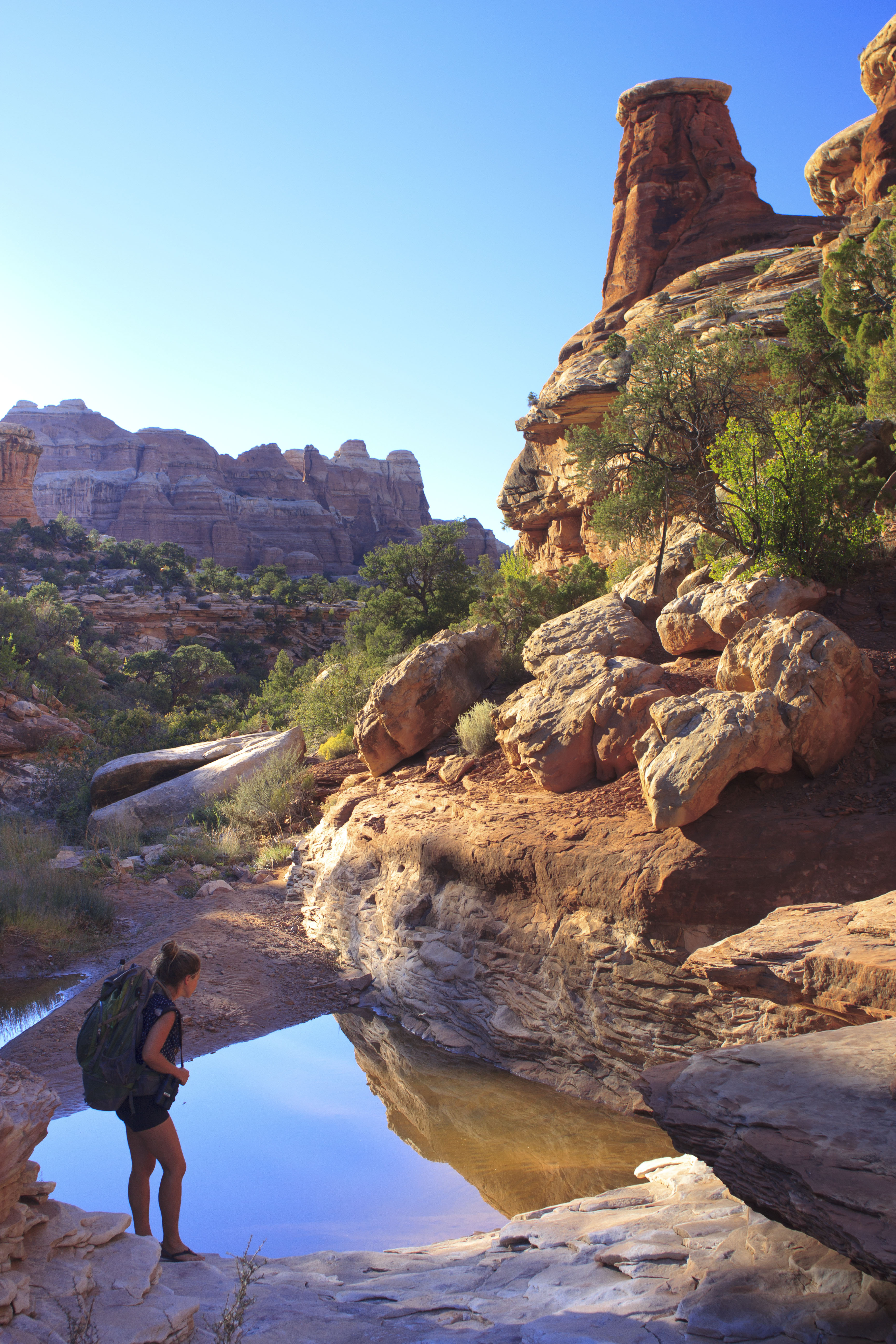
We walked to where machines make no sounds, deep into Squaw Canyon in the Needles. A 13 mile hike.
–
There, we found a cool spot to rest, an oasis in the heat of the day. James slept under the wide brim of his beat up felt hat. I ate pine nuts one by one. They littered the ground under the pinyon tree that shaded us, a free feast. Pinyon jays, smart and mischievous birds named for these trees, these nuts, laughed together in the branches above.
–
I thought of this, of us living beings eating free food in a canyon maze. As the jays guffawed and I crunched more nuts, a world of endless tough labor seemed unnecessary and cruel. The earth isn’t a place of scarcity. It is abundant, generous. We have to learn to look. We need to begin to appreciate intricate, simple things like wild pine nuts scattered on the dirty ground
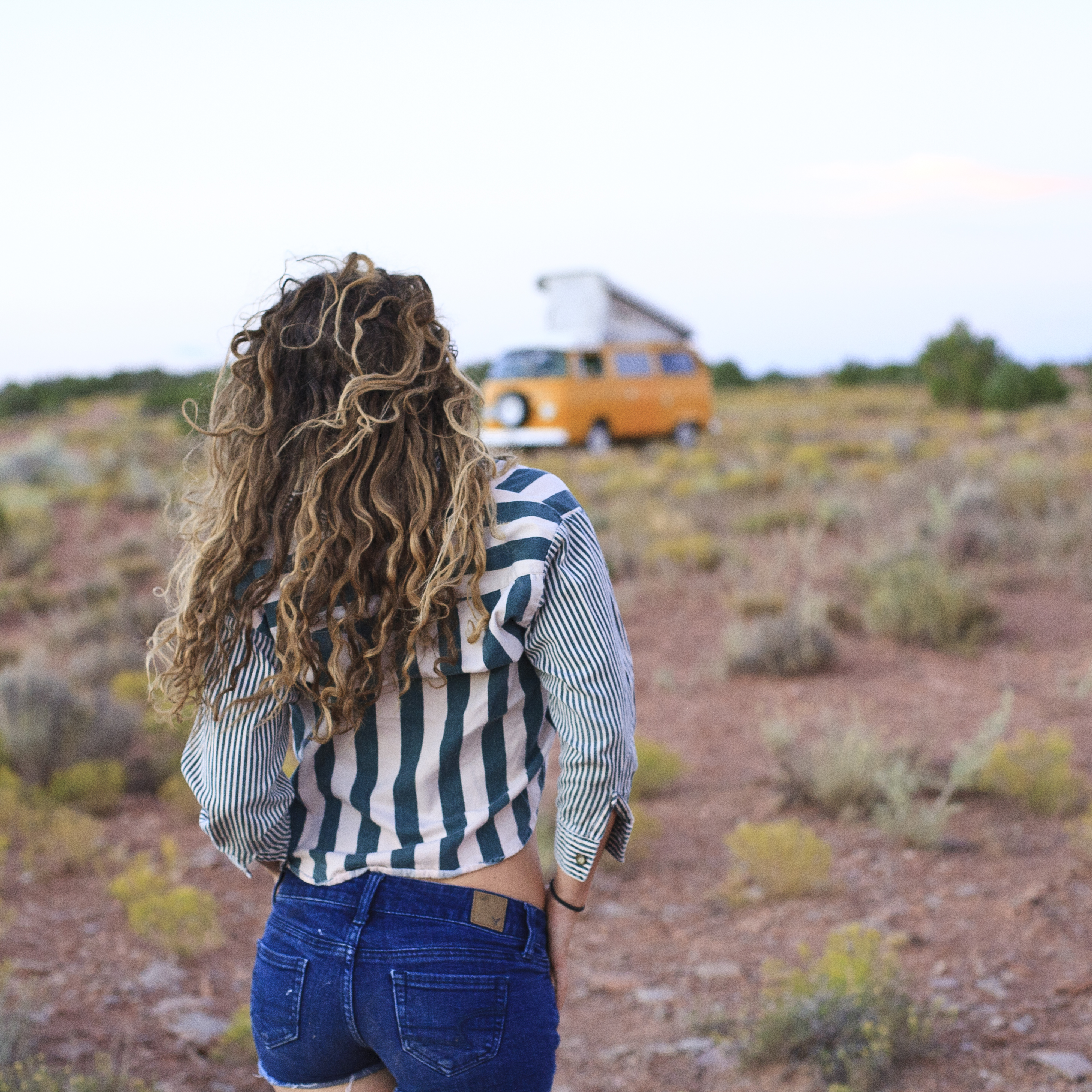
It was late, and we really needed somewhere to park.
–
We had spent the day in the library, working on projects, on this and that, the non physical things that need attention too. But time had gotten away from us, and we looked for a sleeping spot in the dark.
–
Thirty miles outside of town, we swung right at a gravel road. The pull-outs were full of big campers, ones that can’t make it up the faint side roads. We took the third double track road we passed, and followed it to a dead end of slick rock that shone like worn seashells in the moonlight. We pulled the E-brake right there on the rock and popped the top. Relieved, we climbed upstairs into bed, anticipating the morning, when we’d wake to the whole slick rock scene in the promising light of a new day.
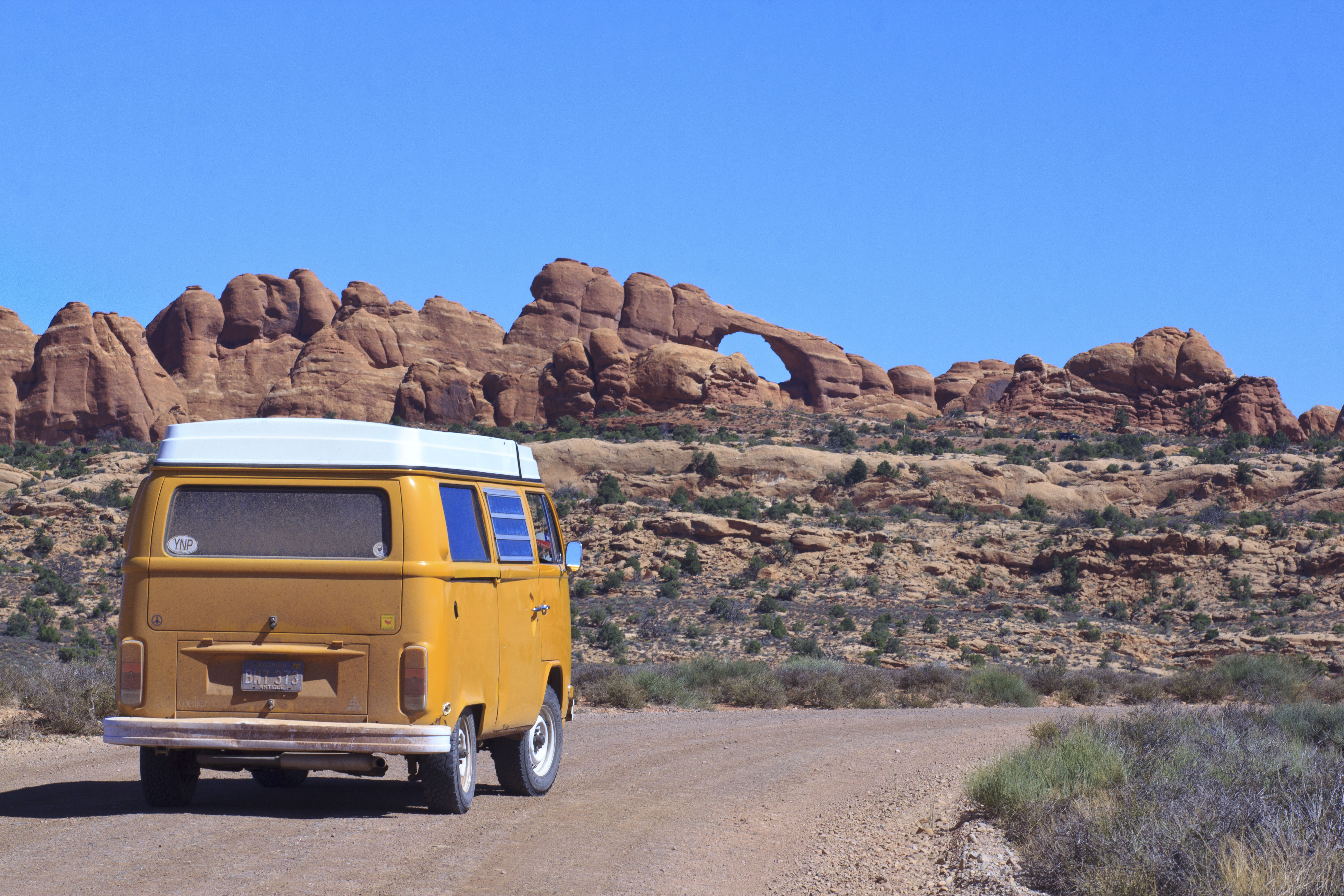
 Every road tells a story. Of ranchers and pioneers, of natives and bison, of long extinct mammoths and giant sloths that once roamed the grasslands. And now us, passing through not for survival of body, but of spirit.
Every road tells a story. Of ranchers and pioneers, of natives and bison, of long extinct mammoths and giant sloths that once roamed the grasslands. And now us, passing through not for survival of body, but of spirit.
















This is a practical question, I’m afraid. Your pix are beautiful, but you always seem to be wearing different clothes. How do you keep so many outfits in that van?
Thanks for the kind words about our photos!
Here’s how my (rachel’s) wardrobe works. At the beginning of every season, we hit a thrift/antique store and I spend some money on my seasonal outfits. At the end of that season, I give those items back to the thrift store. Since we’re limited on space, and everything we own is in the bus, I can’t carry too many outfits. So, by buying a wardrobe for the next 3 months, I can always have “New” and inexpensive and sustainable clothing to wear, every season. It doesn’t cost much and saves us a lot of space hauling stuff around. Plus, i always find the best stuff in the middle-of-nowhere Oklahoma antique store!
I used to be a ranger in the Needles district for a Fall season a few years back. Going through your photos and reading your words, especially your mention of Squaw Canyon was a beautiful trip down memory lane. That area of the country is such a gift and such a subtle masterpiece. The endless vistas, the deep harrowing silences, and the playground slick rock are so uniquely precious. I miss southeast Utah, but I hope to make it back again soon. Perhaps seeing it in a van, or my own choice, a Toyota 4runner, with a female partner that harbors an insatiably adventurous spirit is the way to do it next time. Thank you for the documentation and the inspiration. May your travels keep rolling.
Just resize your photos as some are 6.5mb per image.
Beautiful photography and an escape from normal life as we know it!